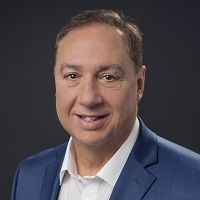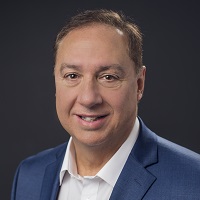Start Early and Keep Building Good Money-Management Habits
Many parents just wing it with their finances. They may be getting away with it for now, but their kids likely won't. So, here's how parents can help their kids start saving for retirement earlier than they did.


Profit and prosper with the best of Kiplinger's advice on investing, taxes, retirement, personal finance and much more. Delivered daily. Enter your email in the box and click Sign Me Up.
You are now subscribed
Your newsletter sign-up was successful
Want to add more newsletters?

Delivered daily
Kiplinger Today
Profit and prosper with the best of Kiplinger's advice on investing, taxes, retirement, personal finance and much more delivered daily. Smart money moves start here.

Sent five days a week
Kiplinger A Step Ahead
Get practical help to make better financial decisions in your everyday life, from spending to savings on top deals.

Delivered daily
Kiplinger Closing Bell
Get today's biggest financial and investing headlines delivered to your inbox every day the U.S. stock market is open.

Sent twice a week
Kiplinger Adviser Intel
Financial pros across the country share best practices and fresh tactics to preserve and grow your wealth.

Delivered weekly
Kiplinger Tax Tips
Trim your federal and state tax bills with practical tax-planning and tax-cutting strategies.

Sent twice a week
Kiplinger Retirement Tips
Your twice-a-week guide to planning and enjoying a financially secure and richly rewarding retirement

Sent bimonthly.
Kiplinger Adviser Angle
Insights for advisers, wealth managers and other financial professionals.

Sent twice a week
Kiplinger Investing Weekly
Your twice-a-week roundup of promising stocks, funds, companies and industries you should consider, ones you should avoid, and why.

Sent weekly for six weeks
Kiplinger Invest for Retirement
Your step-by-step six-part series on how to invest for retirement, from devising a successful strategy to exactly which investments to choose.
People often ask me when they should start working with a financial professional or, at least, start putting together a plan to ensure a more secure future. Of course, there’s no one right answer. I tell my prospective clients that sooner is better than later, but later is better than never.
Most prospective clients who come to my office are at least 50 years old, in some cases quite a bit older. Some are still working; some are already retired. Few have any kind of plan in place — no budget, no income plan, no idea of how they’ll deal with inflation, taxes, health care costs or any of the other challenges that come with retirement and aging.
They’ve been winging it all their lives, and they’ve gotten by OK — more or less. But most realize they’ll need to put well-thought-out strategies in place if they want their money to last as long as they do when their paychecks stop.
From just $107.88 $24.99 for Kiplinger Personal Finance
Become a smarter, better informed investor. Subscribe from just $107.88 $24.99, plus get up to 4 Special Issues

Sign up for Kiplinger’s Free Newsletters
Profit and prosper with the best of expert advice on investing, taxes, retirement, personal finance and more - straight to your e-mail.
Profit and prosper with the best of expert advice - straight to your e-mail.
I wonder how many wish they’d had a plan when those paychecks started.
Americans are terrible savers — that’s well documented. (Remember that 2017 Bankrate.com report in which nearly 60% of survey respondents said they’d be unable to handle a $500 car repair or $1,000 emergency room bill?) And as fewer and fewer workers have workplace pensions available to them, the need to put a plan in place has become urgent.
Millennials have lofty retirement goals
In June, when TD Ameritrade came out with its 2018 Millennials and Money Survey, it was interesting to learn that members of this optimistic generation expect to retire, on average, at about age 56 — even though, on average, those surveyed said they don’t plan to start saving for retirement until about age 36.
The ambition is admirable. But with credit card debt, student loans, car payments and other budget busters, I’m not sure how that’s going to happen. All they’ll have for income is some semblance of Social Security and what they have saved and invested.
Parents, teachers and the financial industry all need to do better when it comes to educating young people about managing their money. It’s a matter of helping develop good habits early on, and then adding on more strategies as they get older.
Personal-finance lessons don’t have to be difficult or high-tech
When my kids were small and earning an allowance, I gave each of them a deposit bag that contained a spreadsheet and three envelopes marked Save, Spend and Give.
I asked them to save 20% and to give 10% to church or charity; that left 70% for them to spend as they wished. I hoped they’d get into the habit of budgeting for the things they wanted.
Ultimately, their savings were transferred into bank accounts for college. Once they were in college, we took it up a notch. For example, my oldest son, Parker, who just graduated from college, started using the Acorns app, which rounds up purchases on linked credit or debit cards, then puts the change into a computer-managed investment portfolio. Again, it really was about forming habits and not necessarily focusing on accumulation, rate of return or his long-term retirement plans. And it was automatic, so he didn’t miss the money — much like our old homespun save-give-spend method.
How many parents, high schools or colleges teach personal finance to the degree that allows a young person to proclaim, “I can make some really good decisions about money”? From what I see, not many.
It helps to have a trustworthy mentor
Kids are getting into deep credit card debt in college, and their student loans can be crushing. They spend what they have on food, clothes and entertainment, because they aren’t even thinking about a down payment for a house, their own future kids’ tuition payments or retirement.
But the good news is, there is help out there.
Advisers aren’t just for retirees. I recently volunteered at a local hospital as part of the orientation for new physician residents. My job was to help these new doctors figure out what they should be claiming for their exemptions on their W-4s, so their paychecks aren’t eaten up by taxes. But part of the conversation became about student loans — and the biggest loan balance I saw was $480,000.
This young man’s payment was supposed to be $2,100 a month, but he was paying just $700 a month and deferring the rest. Which meant a big chunk of money was moving to the end of the loan, plus interest. He was sure he’d never be able to pay it off. But we helped work out a plan for him and his wife (a teacher with $60,000 in student loans) to use federal student loan debt reduction programs that significantly reduced their payments and the length of their loans.
By tapping into the right strategies, young people can save better, invest smarter and pare down their expenses.
And no, it’s never too late to pull together a plan
Let’s face it — these are skills some parents and grandparents still don’t have. A lot of the people I meet with have an IRA or 401(k), nothing else, and they never look at their statements. They’ve never done the math to see if their income sources will cover their expenses for what could be a 20- or 30-year retirement. And they haven’t thought about what they’ll do if they come up short: keep working, live on less or find a way to earn and/or save more with their investments.
Most are coming up short, by the way.
The sooner you take responsibility for your financial future, the better off you’re going to be. Parents should be making that clear to their kids. And then they should take a look at their own situation and set a good example.
Franke-Folstad contributed to this article.
The appearances in Kiplinger were obtained through a PR program. The columnist received assistance from a public relations firm in preparing this piece for submission to Kiplinger.com. Kiplinger was not compensated in any way.
Profit and prosper with the best of Kiplinger's advice on investing, taxes, retirement, personal finance and much more. Delivered daily. Enter your email in the box and click Sign Me Up.

Rick Barnett is the Founder and CEO of Barnett Financial & Tax, a 35-year-old comprehensive financial advisory firm covering all aspects of Investment, Income, Tax and Estate Planning. Rick and his team serve clients in Michigan, North Carolina and several other states. Rick hosted the “Barnett Financial Hour,” broadcast on numerous radio stations over a seven-year span and has shared financial expertise on ABC, CBS, NBC and Fox 66 News networks. His genuine passion lies in educating people, having conducted hundreds of financial education programs through his organization, Financial Leadership University.
-
 Nasdaq Leads a Rocky Risk-On Rally: Stock Market Today
Nasdaq Leads a Rocky Risk-On Rally: Stock Market TodayAnother worrying bout of late-session weakness couldn't take down the main equity indexes on Wednesday.
-
 Quiz: Do You Know How to Avoid the "Medigap Trap?"
Quiz: Do You Know How to Avoid the "Medigap Trap?"Quiz Test your basic knowledge of the "Medigap Trap" in our quick quiz.
-
 5 Top Tax-Efficient Mutual Funds for Smarter Investing
5 Top Tax-Efficient Mutual Funds for Smarter InvestingMutual funds are many things, but "tax-friendly" usually isn't one of them. These are the exceptions.
-
 Social Security Break-Even Math Is Helpful, But Don't Let It Dictate When You'll File
Social Security Break-Even Math Is Helpful, But Don't Let It Dictate When You'll FileYour Social Security break-even age tells you how long you'd need to live for delaying to pay off, but shouldn't be the sole basis for deciding when to claim.
-
 One of the Most Powerful Wealth-Building Moves a Woman Can Make: A Midcareer Pivot
One of the Most Powerful Wealth-Building Moves a Woman Can Make: A Midcareer PivotIf it feels like you can't sustain what you're doing for the next 20 years, it's time for an honest look at what's draining you and what energizes you.
-
 I'm a Wealth Adviser Obsessed With Mahjong: Here Are 8 Ways It Can Teach Us How to Manage Our Money
I'm a Wealth Adviser Obsessed With Mahjong: Here Are 8 Ways It Can Teach Us How to Manage Our MoneyThis increasingly popular Chinese game can teach us not only how to help manage our money but also how important it is to connect with other people.
-
 Looking for a Financial Book That Won't Put Your Young Adult to Sleep? This One Makes 'Cents'
Looking for a Financial Book That Won't Put Your Young Adult to Sleep? This One Makes 'Cents'"Wealth Your Way" by Cosmo DeStefano offers a highly accessible guide for young adults and their parents on building wealth through simple, consistent habits.
-
 Global Uncertainty Has Investors Running Scared: This Is How Advisers Can Reassure Them
Global Uncertainty Has Investors Running Scared: This Is How Advisers Can Reassure ThemHow can advisers reassure clients nervous about their plans in an increasingly complex and rapidly changing world? This conversational framework provides the key.
-
 Should You Jump on the Roth Conversion Bandwagon? A Financial Adviser Weighs In
Should You Jump on the Roth Conversion Bandwagon? A Financial Adviser Weighs InRoth conversions are all the rage, but what works well for one household can cause financial strain for another. This is what you should consider before moving ahead.
-
 The 8 Stages of Retirement: An Expert Guide to Confidence, Flexibility and Fulfillment, From a Financial Planner
The 8 Stages of Retirement: An Expert Guide to Confidence, Flexibility and Fulfillment, From a Financial PlannerRetirement planning is less about hitting a "magic number" and more about an intentional journey — from understanding your relationship with money to preparing for your final legacy.
-
 5 Mistakes to Avoid in the 5 Years Before You Retire, From a Financial Planner
5 Mistakes to Avoid in the 5 Years Before You Retire, From a Financial PlannerWhen retirement is in reach, financial planning gets serious — and there's a heightened risk of making serious mistakes, too. Here are five common slipups.